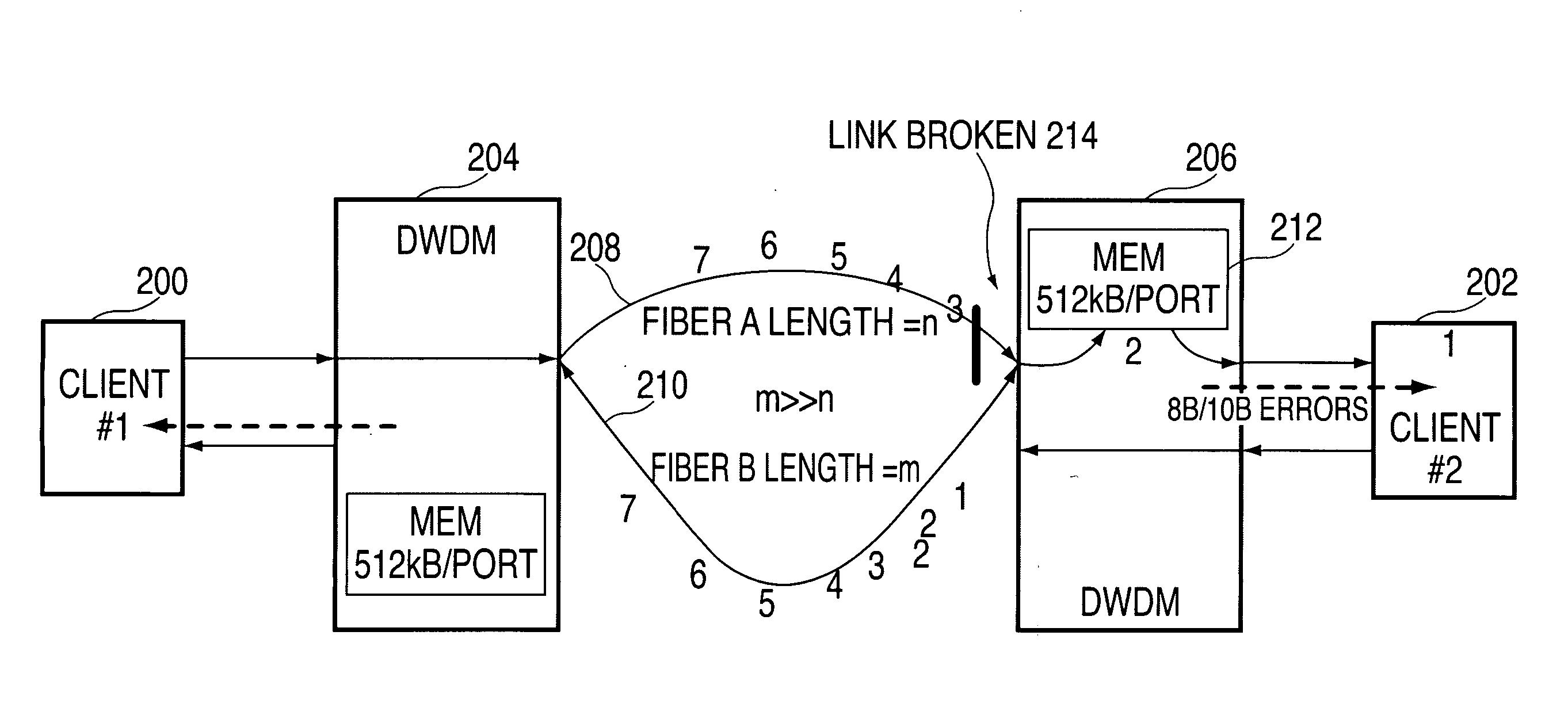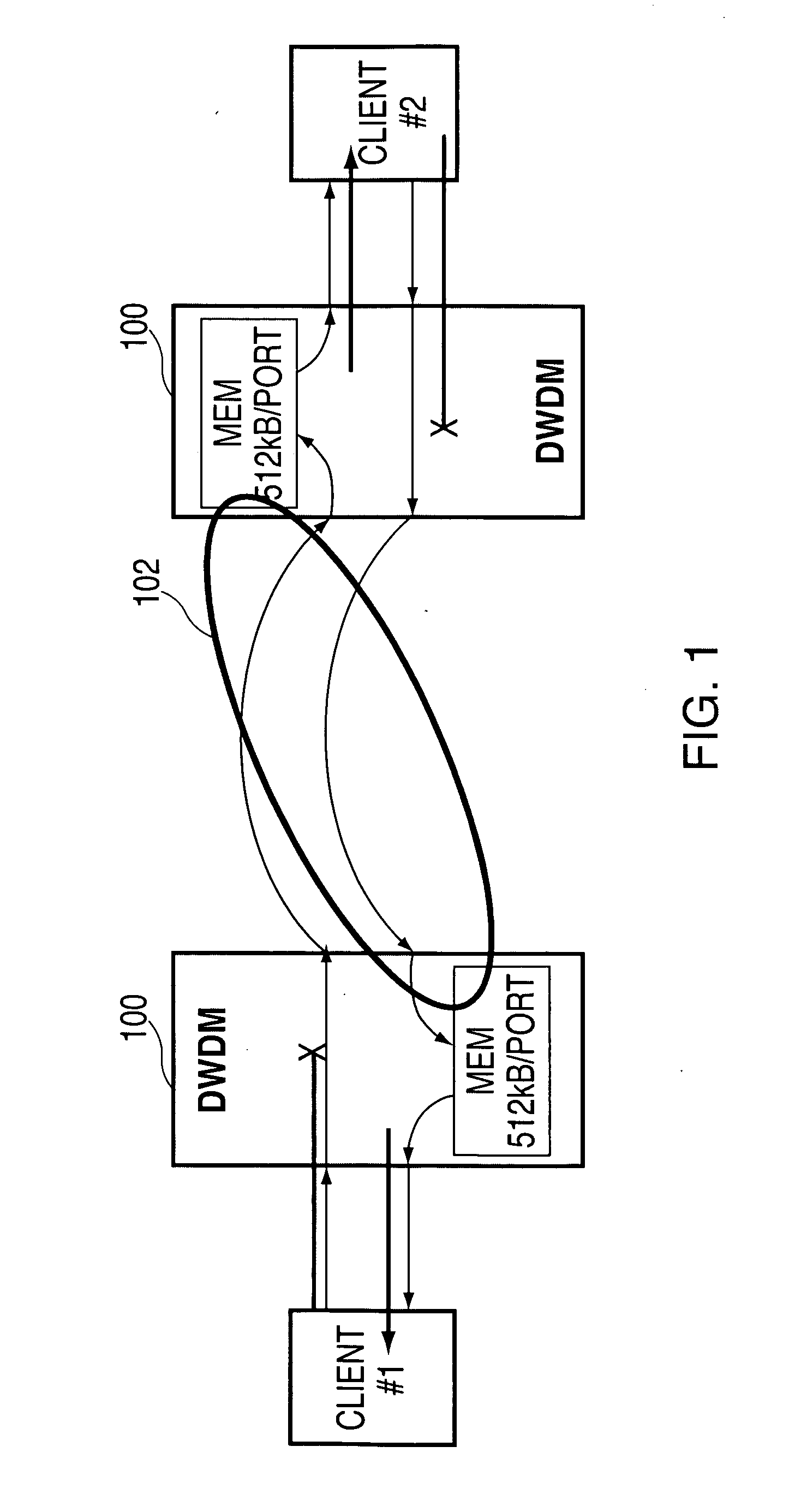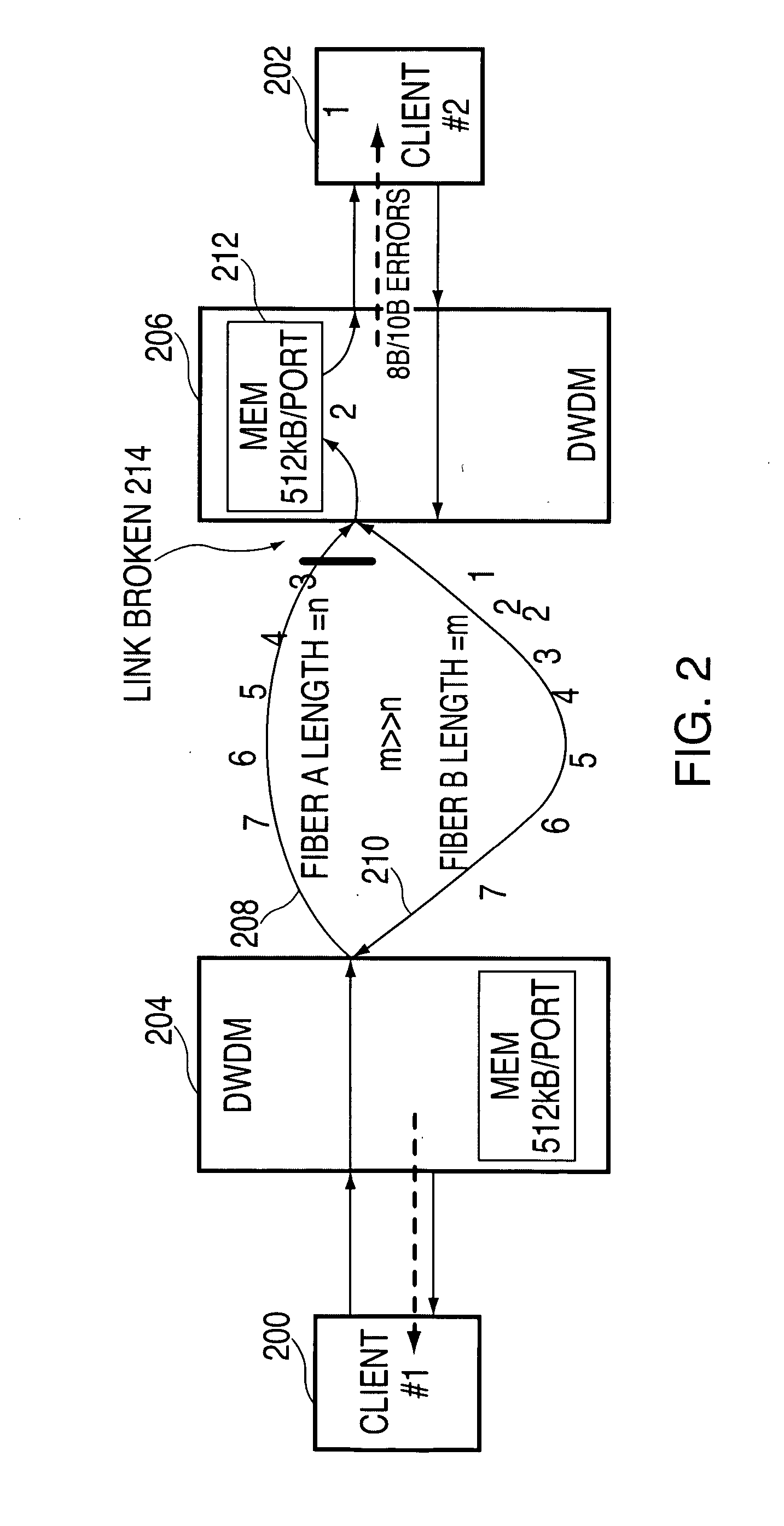Method, system, and storage medium for preventing duplication and loss of exchanges, sequences, and frames
a technology of sequences and frames, applied in the field of network computing and communications protocols, can solve problems such as data frame loss, duplicate or loss, and complicating problems, and achieve the effects of preventing duplication and loss of exchanges
- Summary
- Abstract
- Description
- Claims
- Application Information
AI Technical Summary
Benefits of technology
Problems solved by technology
Method used
Image
Examples
Embodiment Construction
[0017] Exemplary methods, systems, and storage mediums for preventing duplicated or lost frames in extended distance networks using Fibre Channel, FICON, ISC, STP, and similar protocols are described.
[0018]FIG. 2 shows the recovery of extended distance links over SONET according to exemplary embodiments. A first client 200 is communicating with a second client 202. Typically, the clients are computer servers, but they may be any kind of client. A source DWDM 204 and a destination DWDM 206 form a network between the clients 200, 202. In FIG. 2, the network is a basic point-to-point network, however, a larger network may be used in other exemplary embodiments. The network includes a working path 208 and a backup path 210 and the working path 208 is shorter than the backup path 210. In FIG. 2, seven dataframes are shown flowing across each path. Over the longer backup path 210, all seven dataframes are in transmission. Over the shorter, working path 208, frame one has already arrived ...
PUM
 Login to View More
Login to View More Abstract
Description
Claims
Application Information
 Login to View More
Login to View More - R&D
- Intellectual Property
- Life Sciences
- Materials
- Tech Scout
- Unparalleled Data Quality
- Higher Quality Content
- 60% Fewer Hallucinations
Browse by: Latest US Patents, China's latest patents, Technical Efficacy Thesaurus, Application Domain, Technology Topic, Popular Technical Reports.
© 2025 PatSnap. All rights reserved.Legal|Privacy policy|Modern Slavery Act Transparency Statement|Sitemap|About US| Contact US: help@patsnap.com



